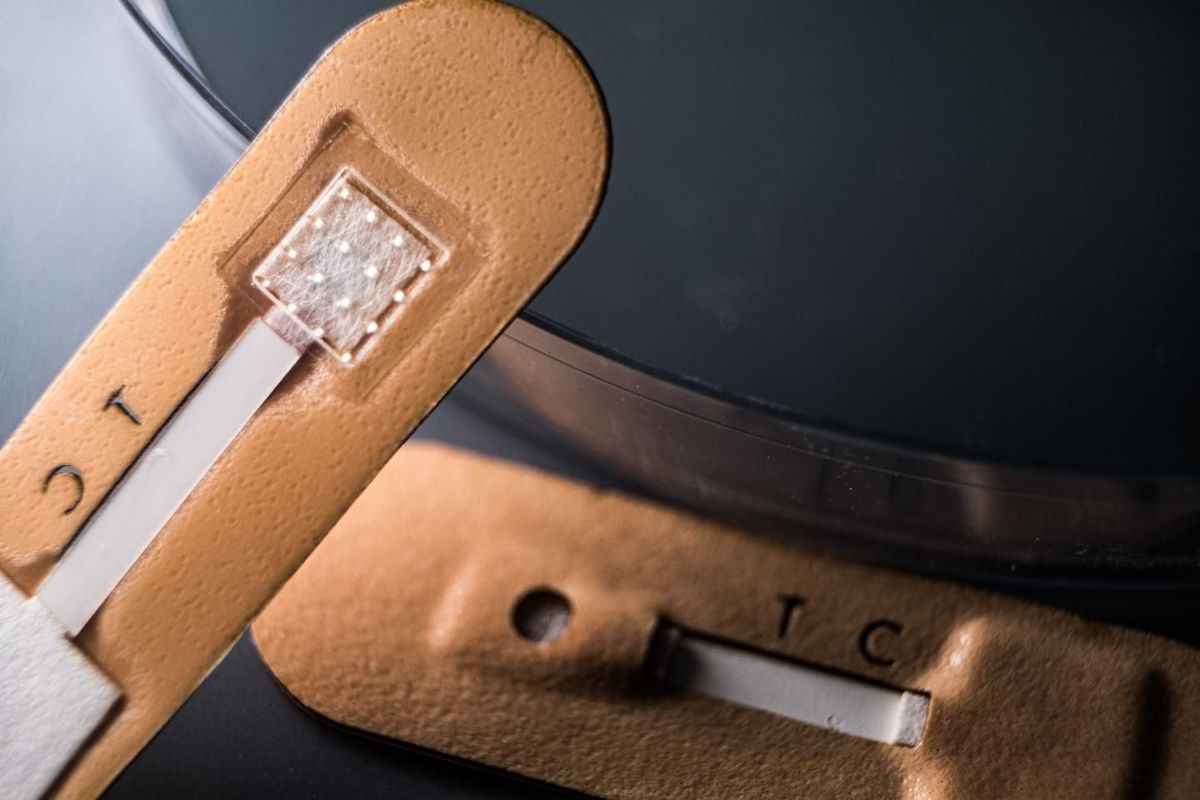Rice University researchers have created a microneedle patch that can identify the presence of malaria in bodily fluids quickly. The patch can be applied to the skin like a bandage and users can read the results from the colored strips in 20 minutes at the longest. The technology is very affordable and doesn’t need any special skills to use.
The patch, which has a 4 x 4 series of hollow microneedles, subtly penetrates the skin and pulls bodily fluid into itself. An antibody-based test strip then identifies malaria protein biomarkers.
The microneedles are extremely small, measuring just 375 microns in diameter. For this reason, they do not cause any pain when inserted. Additionally, they’re hydrophilic, which means they quickly absorb bodily fluid.
Surprisingly, this patch may be used to detect other diseases as well, including the now spreading COVID-19. Peter Lillehoj, one of the researchers involved, said that it is possible to adapt this technology to detect any kind of disease that has biomarkers on the bodily fluid.
Lastly, the researchers calculated that the system could cost anywhere around $1 if mass-produced in large quantities. This implies that it could be useful in low-income areas.

